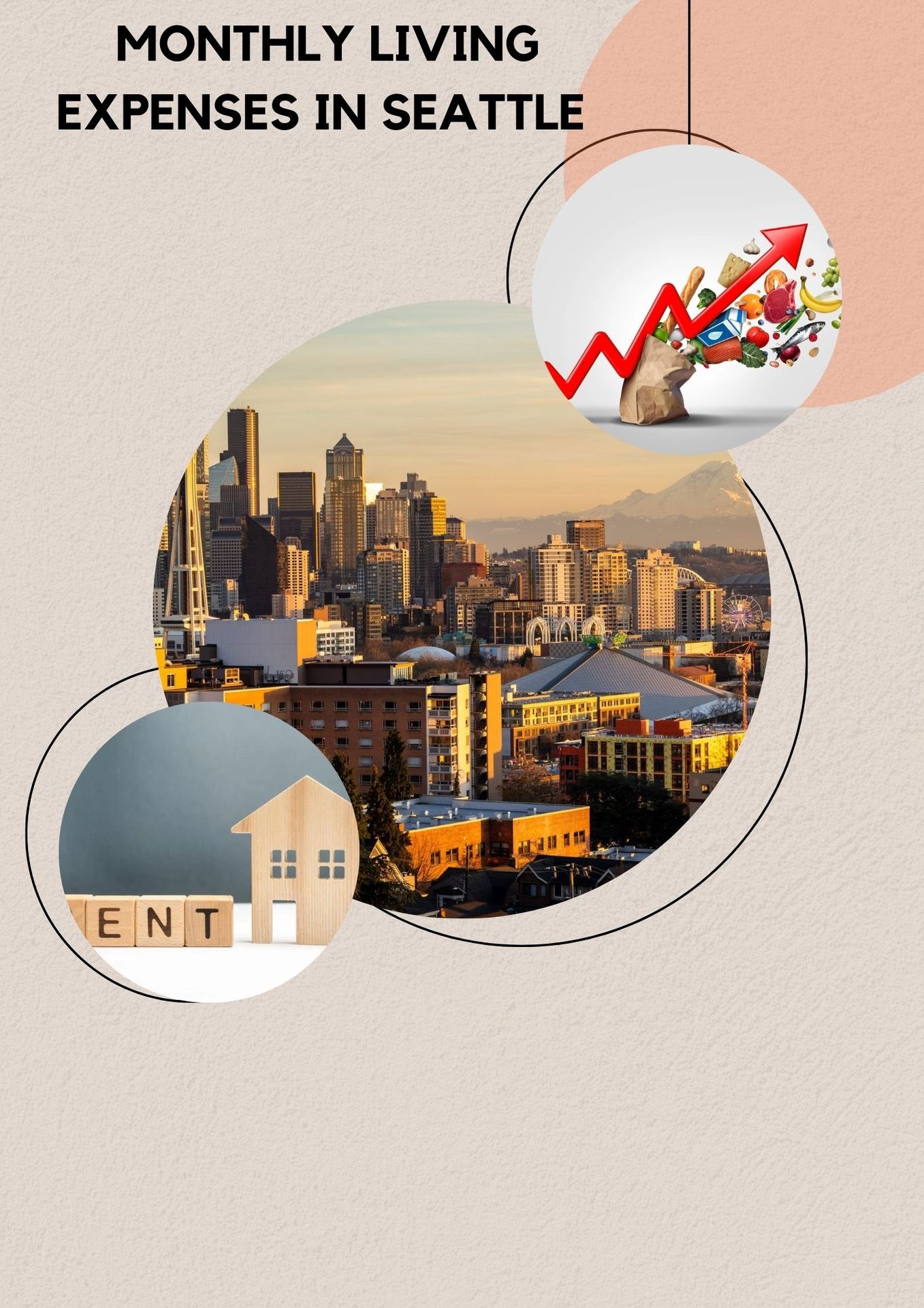
Let's delve into the monthly expenses that students in Seattle typically incur. This post aims to provide a comprehensive overview of living costs in this bustling city.
Before we get started, let me make it clear that this post is not a comprehensive guide on living expenses. Instead, consider it as a snapshot of the average monthly living expenses for students in Seattle that I have discovered.
To estimate accurately, let's utilize Numbeo.
It helps us determine the median monthly cost of living for individuals aged 18 to 34 in Seattle. Comparing this data with other cities across the United States allows us to get a comprehensive understanding. Additionally, we'll share some money-saving tips specific to living in Seattle. Numbeo comes in handy as it offers information on the median monthly cost of living for various world cities.
To use it effectively, input the city you wish to compare, select your desired age group, and specify the country you want to compare against. By incorporating Numbeo's findings, you can accurately estimate Seattle's cost of living for students.
On average, living in Seattle can cost differently depending on your circumstances. It is a good starting point to budget for living expenses in Seattle, but remember that your actual expenses may vary.
Are you curious about the average cost of living in Seattle? Well, let me share that it amounts to $1,898, covering essential costs like rent, groceries, utilities, and transportation.
Of course, remember that your personal circumstances may lead to spending more or less than this figure. Nevertheless, starting with this amount can be a helpful reference when considering a budget-friendly lifestyle in Seattle.
Cost of housing in Seattle
Looking to live in Seattle? Budgeting carefully is essential since housing costs can vary significantly based on your preferences.
You'll be interested to know that students in Seattle incur an average monthly cost of living of $1,650. This encompasses all essential expenses from accommodation and meals to transportation.
Housing represents the largest expenditure in a student's monthly budget. On average, it costs $1,527 per month for a two-bedroom apartment in Seattle. This cost is determined based on prevailing rental rates.
If you are considering city living, Seattle may not be the most affordable choice available. However, if your priority is proximity to the University of Washington and other major urban centers, Seattle emerges as an excellent option which recommends you to look into Nora apartments seattle.
If you're on a tight budget, there are plenty of affordable apartments available. Just make sure to thoroughly research before moving to avoid any unexpected hidden costs.
Transportation expenses in Seattle
-Monthly parking: $60
-Monthly transit pass: $60
-Monthly bike share membership: $60
Total transportation expenses for a student living in Seattle: $130.50
This estimate may vary depending on your location and commuting preferences. Keep in mind that costs can fluctuate based on where you live and how you commute.
Transportation expenses are a significant burden for students in Seattle, making them one of the costliest aspects to consider.
Be cautious of these expenses as they can quickly accumulate and potentially surpass your monthly rent if you're not careful.
If you find it challenging to meet your monthly expenses, take a moment to explore ways you can reduce your transportation costs. This could help alleviate your financial strain.
If covering these costs becomes challenging, there are several strategies you can consider to reduce them.
Food and groceries in Seattle
Are you planning to live in Seattle? Well, the cost of living there is $1,527 per month.
There 's great news for you: Seattle is a haven of culinary delights. The city boasts an abundance of restaurants and an array of food options to suit every palate.
Living in Seattle can be quite expensive. Unfortunately, the bad news is that the average rent for a one-bedroom apartment is $1,548 per month.
If your goal is to save money, it's essential to be mindful of your spending habits. Additionally, being willing to prepare most of your meals can contribute significantly to cost savings.
If you're considering living in Seattle, it's essential to know that the monthly cost of living here is $1,527. This amount covers expenses like groceries, transportation, and utilities. Despite its vibrant food scene, Seattle can be quite expensive to reside in. But the student accommodation Seattle are affordable and designed to meet the needs of the students.
Utilities and bills in Seattle
You may have different utilities to consider when managing your expenses. These can include essential services such as rent, electricity, heating, wi-fi, etc.
If you're searching for an affordable living option in Seattle, it's essential to be aware of the associated expenses. Understanding your monthly spending can help inform your decisions regarding housing and bills to prioritize.
Entertainment and leisure expenses in Seattle
When calculating these costs, there are multiple factors to take into account. These include the expenses related to groceries, transportation, and utilities.
Groceries: $1,527
Transportation: $1,691
Utilities: $1,547
Entertainment: $2,691
Seattle students also have significant expenses beyond their education. On average, they spend $782 per month for various items, including entertainment and clothing expenditures.
Tips to save money
Looking to save money on groceries? Here are a few simple tips for you:
First and foremost, consider shopping at bulk stores or Costco. Additionally, try meal planning and cooking at home instead of dining out at restaurants.
Lastly, be sure to take advantage of discounts offered by local grocery stores and supermarkets.
Want to save on your utility bills?
First, consider using energy-efficient appliances. They can significantly reduce your energy consumption.
Second, turn off the lights when you're not in the room. This simple habit can make a big difference in saving electricity.
Lastly, try to avoid unnecessary water usage whenever possible. Every drop counts! Additionally, consider reaching out to your utility company for any special offers or discounts that might be available to you.